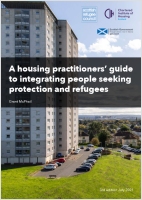'Zambrano' carers
Contents:
What is a 'Zambrano' carer?
A 'Zambrano' carer is a person from a non-EEA state whose residence is required to enable a child or dependant adult who is British to live in the UK (or the rest of the EEA). It is a right derived from EU law, so it now only applies to a person:
- who entered the UK on or before 31 December 2020, and
- who made an application to the EU Settlement Scheme,
and who either:
- has EU pre-settled status, or
- applied on time but their application has not yet been decided.
A Zambrano carer is a parent who had sole care of a child with British citizenship. The Zambrano carer had the right to live and work in the UK (and continues to do so provided s/he applied to the EU Settlement Scheme on time). This right is known as a Zambrano right after the case that established it and was included in the EEA regulations (Regulation 16(5)): see the Home Office guidance (pdf) on how these regulations were applied.
The parent with care was only granted this right if it was the only way to guarantee the right of the (British citizen) child to continue to live in the UK (or the rest of the EEA). But it was not issued where another carer was available for the child (e.g. the other parent). Domestic violence may, of course, have affected the likelihood of this.
Zambrano carers with EU settled status
EU settled status is a form of indefinite leave to remain. A Zambrano carer with EU settled status is eligible for housing and help if they are homeless (Class C) and universal credit/housing benefit to help pay their rent.
Zambrano carers with EU pre-settled status
A Zambrano carer with EU pre-settled status has the right:
- to live and work in the UK
- in Scotland and Northern Ireland, to rent a home from a private landlord without (unlike in England) having to prove their immigration status, and
- in Scotland only, apply to the council as homeless or to join its housing waiting list (see here for why the law is different in Scotland).
But in Scotland and Northern Ireland, a Zambrano carer with EU pre-settled status is not entitled to universal credit (UC), state pension credit (SPC) or housing benefit (HB).
The rules above by which a person with EU pre-settled status has access to housing and benefits are those that applied immediately before the Brexit transition period ended but based on that person’s current circumstances (SI 2020/1309, schedule 4).
Although a Zambrano carer is not entitled to UC, SPC or HB, if they need help with daily living expenses or to pay rent they can apply to the social work department, if they cannot accommodate or support themselves. Applicants in this situation are often asked to prove that they are destitute: in fact, since they have a right to reside, the law does not require this (see advising people with social care needs).
EUSS applicants waiting for a decision or refused settled/pre-settled status
Provided their application was made on time, a person’s right to live, work and access housing and benefits while they wait for a decision are the same as a person who has been granted pre-settled status (SI 2020 No. 1209 reg. 4).
Monitoring of EUSS decisions has shown that applications by Zambrano carers are often refused. If settled/pre-settled status is refused, prompt action must be taken to prevent that person from becoming an overstayer and losing their right to live in the UK. The applicant should seek immediate advice from an experienced IAA registered adviser. The applicant has the right to appeal to a tribunal but must do so within 14 days of being notified of the decision if living in the UK, or 28 days if they are outside. The appeal can be made online (and must be made online if it is submitted by your solicitor/adviser).



